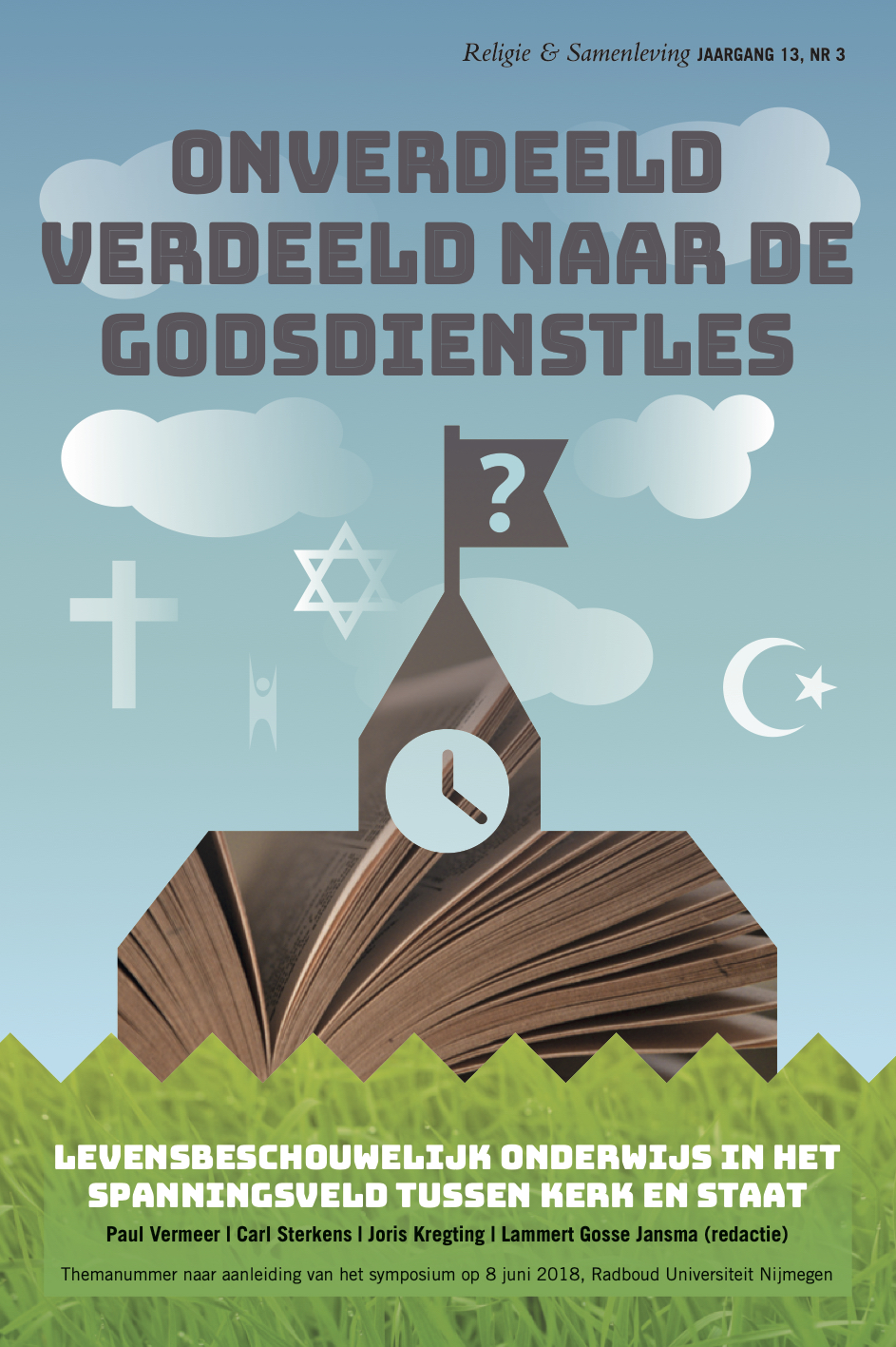Opvattingen van Nederlandse en Vlaamse jongeren over de gewenste verhouding tussen levensbeschouwing en overheid
Levensbeschouwelijke predictoren en consequenties voor de rol van levensbeschouwing op school
DOI:
https://doi.org/10.54195/RS.11841Samenvatting
This contribution elaborates on the role of the government in relationship to philosophy of life in general, and formation in particular, as ideally perceived by young people in the Netherlands and Flanders. It serves two goals: (1) to show to what extent youth, committed in their philosophy of life, agree with each of four typologically distinguished models of the relationship between philosophy of life and state: autonomyliberalism; diversityliberalism; groupcommunitarianism; and statecommunitarianism; and (2) to test whether different religious and philosophical convictions and practices influence the agreement with these typological models of the relationship between philosophy of life and state. The analysis shows that youth prefer a cooperative but restrained relationship between philosophy of life and state. Differences in preference between religious and humanist groups (i.e. Catholics, Protestants, Moslims and Humanists) are bigger than differences between Dutch and Flemish youth. Analysis also shows that religious and humanist convictions and practices play a role in the levels of agreement with each of the typologically distinguished models.




